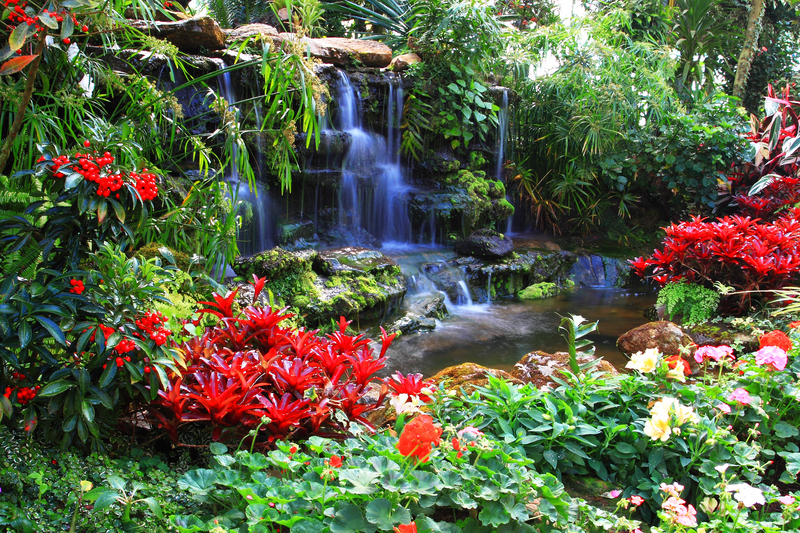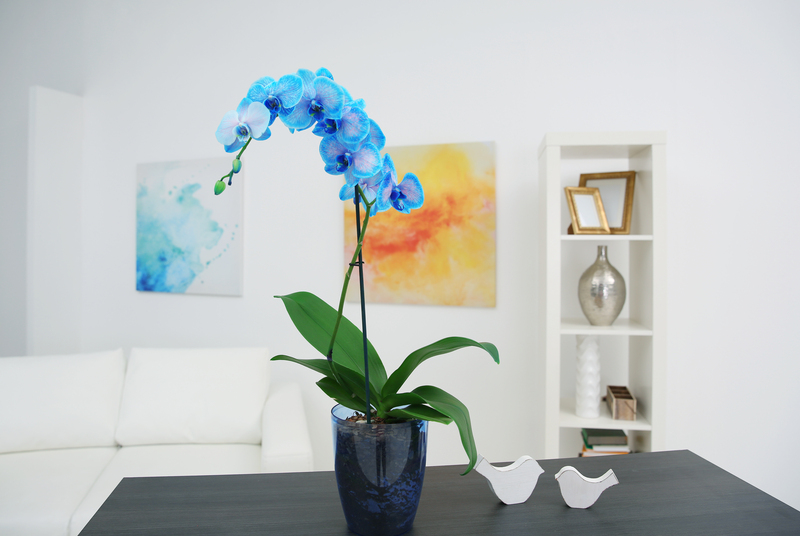9 Handy Tips Every Gardening Beginner Should Master
Posted on 13/08/2025
9 Handy Tips Every Gardening Beginner Should Master
Embarking on a gardening journey is both exciting and rewarding. Whether you seek a lush backyard, a thriving balcony garden, or simply wish to cultivate your own herbs, getting started can be overwhelming for first-timers. But fear not--here's a comprehensive, easy-to-understand guide on the most essential gardening tips beginners must know. Follow these handy gardening strategies to set you on the path to a flourishing green space.

1. Start With Understanding Your Local Climate and Soil
Before planting anything, get to know your garden's environment. Successful gardens are built on thoughtful observation and knowledge. Research your USDA hardiness zone to determine which plants will thrive in your area.
- Know Your Zone: Determine which plants can survive your winters and heat. Use resources like the USDA Plant Hardiness Zone Map to get started.
- Test Your Soil: Take a simple soil test to check for nutrients, pH, and texture. Healthy soil is the backbone of fruitful gardening.
- Plan for Sun & Shade: Observe your garden's sun patterns--some plants need at least six hours of sunlight; others prefer shade.
Pro Tip: Investing in a soil test kit and a sun/shade calculator can help you get the basics right from day one.
2. Choose the Right Plants for Your Space
Every plant has its own requirements for sunlight, water, and soil. Match your plant selection to your garden's conditions. If you're a gardening beginner, start easy.
- Start Simple: Choose resilient, low-maintenance plants like marigolds, basil, and tomatoes.
- Native Plants: Opt for species native to your region; they're generally easier to grow and need less care.
- Companion Planting: Group plants that grow well together; for instance, basil enhances tomato growth.
Adapting your plant choices to your garden's unique microclimate is one of the best beginner gardening tips you'll ever get!
3. Master the Art of Watering
Many beginners struggle with watering their gardens. Too much or too little water can be detrimental. Here are some best practices:
- Water Deeply: Let the water reach the roots, not just the surface. Shallow watering causes weak root systems.
- Early or Late: Water early in the morning or late in the afternoon to minimize evaporation and fungal diseases.
- Check Soil Moisture: Stick your finger about an inch into the soil; if it feels dry, it's time to water.
- Mulch: Adding a layer of mulch con-serves moisture and keeps roots cool.
Remember: Consistent, thoughtful watering is a hallmark of successful gardening for beginners.
4. Feed Your Plants Nutrients
Plants need more than just water and sunlight. Providing the right plant nutrition is one of the most important gardening basics for beginners.
- Compost: Add compost to enrich the soil naturally. It improves structure and supplies nutrients.
- Fertilizer: Use organic or synthetic fertilizers based on the needs of your plants. Always follow package instructions.
- Don't Overfeed: Excess fertilizer can damage plant roots and lead to poor growth.
Creating a compost bin at home is an eco-friendly way to recycle garden and kitchen waste, helping you nurture your plants naturally.
5. Learn Basic Pruning Techniques
Pruning isn't just for advanced gardeners. Regular trimming encourages healthy growth, shapes plants, and prevents diseases. Here's how gardening newcomers can make the most out of basic pruning:
- Use Sharp Tools: Invest in quality pruners; dull blades can damage your plants.
- Remove Dead or Diseased Wood: Always cut out unhealthy plant parts to prevent the spread of pests.
- Don't Overdo It: Only prune when necessary--especially for flowering shrubs, which may bloom on old wood.
Understanding plant-specific pruning times is a game-changer for any gardening beginner eager to see healthy, thriving plants.
6. Keep Pests and Diseases at Bay
Pests and diseases can undo months of hard work in your beginner-friendly garden. Prevention and early intervention are key.
- Inspect Regularly: Check plants frequently for signs of trouble--holes in leaves, discoloration, or sticky residue.
- Encourage Good Bugs: Ladybugs and lacewings are natural predators of harmful bugs.
- Use Natural Remedies: Neem oil, insecticidal soap, or homemade garlic sprays can be effective and less harmful to beneficial insects.
- Practice Crop Rotation: If you grow veggies, rotate where you plant each year to minimize disease buildup in the soil.
Remember, a little proactive effort keeps your beginner garden healthy and reduces the need for harsh chemicals.
7. Mulch for Healthier Soil and Fewer Weeds
Mulching is a secret weapon for every gardening novice. It helps to:
- Retain Soil Moisture: Mulch slows evaporation, so your plants need less frequent watering.
- Suppress Weeds: A thick layer of mulch makes it harder for weeds to take hold, reducing maintenance.
- Regulate Temperature: It insulates the soil during hot summers and cold winters.
- Feed the Soil: Organic mulch (like bark or straw) breaks down over time, adding nutrients.
Tip: Apply 2-3 inches of mulch, but keep it away from plant stems to prevent rotting.
8. Stay Organized With a Gardening Plan
Even a small garden can get unruly quickly. Beginner gardeners benefit greatly from having a plan:
- Sketch Your Layout: Plan what goes where, factoring in plant heights, bloom times, and companion plants.
- Keep a Journal: Record what you plant, when you sow seeds, and how plants respond to care.
- Label Everything: Use waterproof tags or markers to keep track of plant varieties and care instructions.
- Schedule Tasks: Set reminders on your phone or write them down for watering, fertilizing, and pruning.
With a clear gardening plan, you'll avoid overcrowding and ensure every plant gets the attention it needs.

9. Embrace Patience and Keep Learning
This may be the most crucial tip of all. Gardening is an ongoing learning experience. Plants grow at their own pace, and mistakes are inevitable.
- Be Patient: Many plants take weeks or months to reach maturity. Don't get discouraged by initial setbacks.
- Seek Resources: Garden centers, community gardens, and online forums are rich with fellow gardeners willing to help.
- Celebrate Progress: Take photos or notes--watching your beginner garden flourish over time is hugely rewarding.
- Keep Experimenting: Try new seeds, layouts, and techniques to develop your unique gardening style.
The best gardens are grown with a mix of knowledge, patience, and a willingness to learn from both success and failure.
Final Thoughts on Essential Gardening Tips for Beginners
Beginning your gardening journey doesn't have to be daunting. By mastering these nine handy gardening tips, you will lay the foundation for a beautiful, healthy, and productive green space--no matter your experience level or the size of your plot.
To recap, understand your local conditions, choose appropriate plants, water and feed them well, manage pests and soil health, keep your space organized, and above all, enjoy the process.
If you're ready to dig in the dirt, remember--every expert gardener started where you are today. Grab your gloves and start growing!
Frequently Asked Questions: Gardening for Beginners
- Q: What is the easiest plant for beginners?
A: Herbs like basil and mint, vegetables such as radishes and lettuce, and flowers like marigolds are all easy starter plants. - Q: How often should I water my garden?
A: Most gardens need 1-2 inches of water per week, but check your soil's moisture regularly to guide you. - Q: When should I start planting?
A: This depends on your area's climate and the plants you choose. Consult your local nursery or online planting calendars for guidance.
For more in-depth guides and ongoing gardening inspiration, bookmark this article. Happy growing!
Latest Posts
Neglect no More: Jumpstarting Your Garden Makeover
Unlock Privacy Secrets with 9 Hedges That Grow Fast
Crafting Serenity: Steps to a Stunning and Practical Herb Garden



